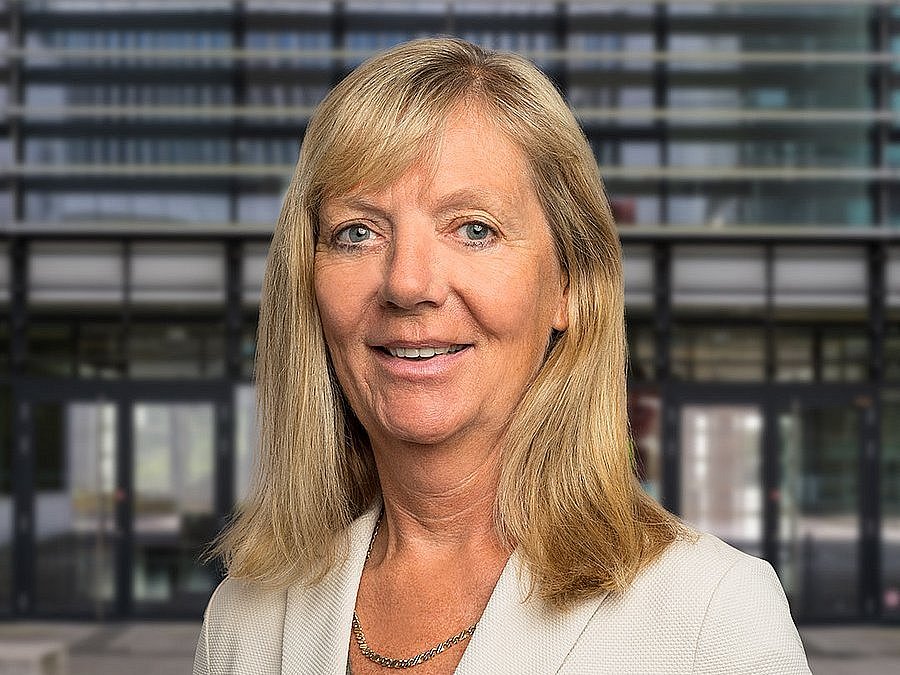
Truancy - when children don't go to school
Prof Dr Petra Buchwald / Institute for Educational Research
Photo: Private
Truancy - when children don't go to school
Education scientist Petra Buchwald is looking for solutions for truants in an EU funding programme
Truancy describes all common forms of unauthorised, unlawful absence from school by pupils, a phenomenon that has existed since the introduction of compulsory education in 1919. Researcher Prof Dr Petra Buchwald from the Institute for Educational Research at the University of Wuppertal’s School of Education has taken part in an EU funding programme together with partners from Greece, Spain and Turkey in order to find solutions for truant pupils.
Reasons for truancy
There are always several reasons why children and young people stay away from school, explains Buchwald, citing two examples: "One reason is that parents actually stop their children from going to school for various reasons. This phenomenon is relatively often in precarious circumstances. Then, parents don't have a very favourable attitude towards school and want their older siblings to look after the younger ones, for example, because they may not be able to do so themselves." Other children are also notoriously truant. The reason for this could be a disturbed relationship with the teacher or a lack of success, and this in turn could develop into real anxiety.
According to experts, 300,000 children and young people in Germany refuse to attend school regularly every year. That is eight per cent of all pupils. These children and young people miss more than ten days per school year without being excused. In fact, 50,000 pupils leave school every year without a school-leaving certificate.
Truancy - a European problem
Buchwald has joined a project group as part of an EU funding programme. "It has to be said that this project idea to counteract truancy came from well-known researchers in Turkey," she explains. "We have direct relationships with several universities in Turkey through the University of Wuppertal and also have many Turkish students here. This connection brought me to a group of researchers who asked if we would be interested in participating in this funding programme, along with Spain and Greece." Various workshops were held together and ideas were collected. This resulted in a concept that Buchwald implemented and evaluated at 14 selected secondary modern schools (Hauptschule) in the Bergisches Land.
Compulsory school attendance was introduced in all countries participating in the project by the early 1930s. In comparison to Germany, where the absenteeism rate is around 8 - 10%, the Greeks and Turks struggle with an absenteeism rate of 20% and 30% respectively, the researcher explains. In Germany, this problem is at least monitored more closely. "Compulsory school attendance in Germany is well monitored and implemented. Pupils cannot simply drop out if they have not attended school for at least 10 years. If children don't turn up for lessons and their parents don't take care of it, the regulatory agency and, in the worst cases, the police are called to escort the pupils to school. If children are unable to attend lessons for a longer period due to illness, they are given lessons in hospital, for example. We are actually in a very good position here in Germany." Whether and how compulsory school attendance is observed in other EU countries cannot be answered in Germany. However, the high number of cases in Spain, Greece, and Turkey can also be explained by a secondary problem. "I think it's interesting in this context, of course, that these countries have a high unemployment rate among young people, which is 30% in Spain, for example, and 5% in Germany. This means that when German students finish school, they have a good chance of getting a job. In Spain and Turkey, the prospects are rather poor and even in the more rural areas of Turkey; parents expect more from children helping out in the fields."

Children on the way to school?
Photo: Pixabay
Parental styles play a role
Young people at secondary modern schools and special schools (Förderschulen) are the most affected. It is dramatic that around a third of final year pupils stay at home. Experts believe that the problem lies primarily with parents who are no longer willing to engage with school and are unaware that their children are constantly playing truant. "There are many colleagues who are committed to this topic and have started to analyse causes and effects," reports Buchwald. Of course, parental style plays a role here. In her own study, she was able to establish that positive effects can also be observed when parents support their children's compulsory school attendance.
Everything gets better when I'm part of it
Truancy is also a problem in the Bergisch region. There are no reliable statistics, but according to a report in the Westdeutsche Zeitung newspaper a few years ago, the education authority in Wuppertal estimated that around 50 pupils a year are affected in our city. Experts often say that the children lack 'structure'. In her study, Buchwald uses methods and techniques to get young people back on track and prevent truancy. She uses so-called resource techniques, which ask questions such as, for instance, what resources we could give pupils so that they would feel better at school and stay there. One of these resources is self-efficacy, an admittedly strange word, but one that is recognised worldwide as a personality variable. It describes the extent to which people believe they have the necessary skills to persevere in a challenging situation despite all the adversity. "Another such key resource is social support. We applied this resource in 14 different secondary schools around Wuppertal. Therefore, we trained the key variables with the pupils," explains Buchwald, and the reactions of the study participants were clear. "It had the effect that these pupils were happy in a heart-warming, naive way that they were now at the centre of attention for the first time, in the sense of appreciation. They said it was nice that someone was interested in what was happening to the pupils in the secondary modern school." In order to strengthen the pupils' sense of belonging within the school class, Buchwald worked with role-playing games and says: "We had the idea that if someone no longer likes going to school for whatever reason, then they hang around somewhere and are usually alone there. We wanted to make them feel comfortable again in their school class, where they are actually in a group. So we tried to strengthen the pupils’ social contacts within a class." Of course, the researcher would like to see sustainability in the future and hopes for the support of the school social workers who were present during the study and could confirm the results.
Making school a 'safe space'
There are many reasons for school absenteeism. Sociologist Michael Wagner says: "Although it may not be possible to reintegrate every truant into school life, schools are more likely to be able to change something in school than in the parents' homes of their pupils." This is exactly where Buchwald's project comes in. "It's great when the kids are at school, and we have to reach out to them and offer them exactly what they need, namely integration into their class, so that they enjoy coming there." In this context, the younger generation talks about 'safe space', explains the educational scientist. "The pupils from these at-risk groups at the secondary school wanted such a safe space and said: if we can feel comfortable here at school and if we are accepted even with our poorer school performance, then we would basically rather be here than somewhere on the street, because this is actually our safe space."
The experiences from this project will now be published as a guide and be available to other schools. Buchwald speaks of 'train the trainer'. School project days should also be organised. An excellent doctoral thesis is available on this topic and Buchwald is happy to answer questions from interested teachers.
Contact details:
Institute for Educational Research (IfB)
Section: School Pedagogy
Prof Dr Petra Buchwald
EMAIL: pbuchwald[at]uni-wuppertal.de
Uwe Blass
Prof Dr Petra Buchwald heads the School Pedagogy section at the Institute for Educational Research (IfB) of the School of Education at the University of Wuppertal.
